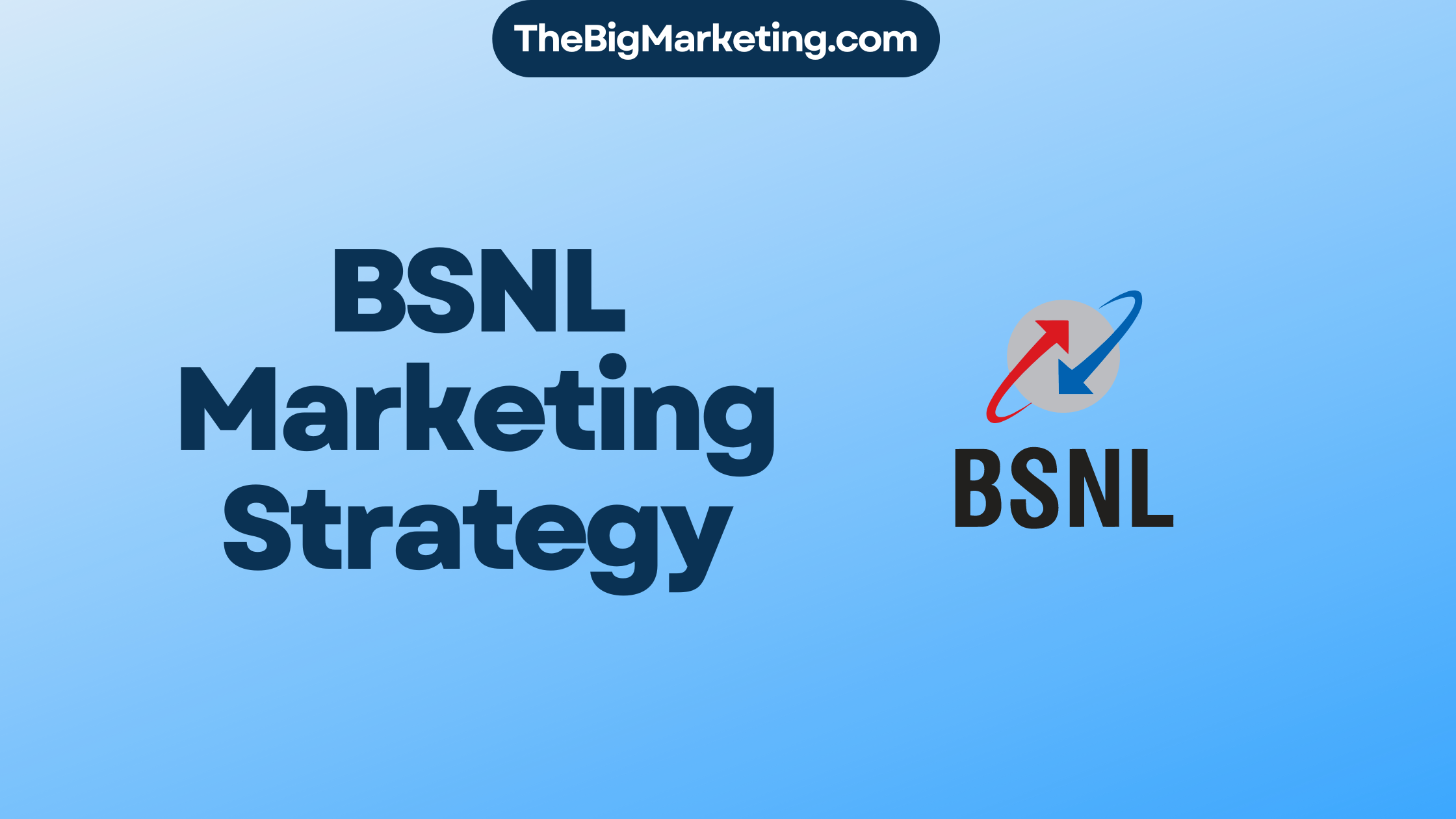Coca-Cola, the leading soft drink brand globally, has implemented a powerful marketing strategy for Coke Zero to promote its zero sugar soft drink and engage consumers. With a rich history and a vast product portfolio, Coca-Cola has consistently been at the forefront of the beverage industry. Through effective marketing techniques, they have been able to captivate their target market and establish their position as a market leader.
Key Takeaways:
- Coca-Cola has implemented a robust marketing strategy for promoting Coke Zero, a zero sugar soft drink.
- The effective marketing techniques employed by Coca-Cola have helped them establish a strong market presence and engage consumers.
- Coke Zero’s marketing strategy focuses on emphasizing its zero sugar formula to attract health-conscious consumers.
- Coca-Cola utilizes a combination of personal and non-personal marketing channels to maximize its reach.
- Through continuous innovation and impactful marketing campaigns, Coke Zero has achieved remarkable success in the market.
Target Market Analysis for Coke Zero
Coca-Cola has implemented a targeted marketing strategy for Coke Zero by analyzing and segmenting its target market. In order to effectively tailor their marketing efforts, it is crucial for Coca-Cola to understand the demographics and preferences of their target audience.
Target Audience: Youth Marketing
Coke Zero primarily focuses on attracting young people between the ages of 10 and 35. This youth-centric approach allows Coca-Cola to establish a strong relationship with this demographic, creating a foundation for long-term brand loyalty.
One effective method that Coca-Cola employs to engage with the youth market is through celebrity endorsements. By partnering with influencers and trendsetters who resonate with young consumers, Coke Zero is able to leverage their social influence and connect with the target audience on a relatable level.
In addition, Coca-Cola has developed specific marketing campaigns targeting young consumers in educational institutions. By aligning their brand with educational institutions, such as colleges and universities, they are able to reach a captive audience who are influential within their peer groups.
Target Audience: Health-conscious Consumers
Coke Zero also caters to health-conscious consumers who are seeking a sugar-free beverage option. By offering Coke Zero as a zero sugar alternative to their classic soft drink, Coca-Cola positions itself as a brand that understands and caters to the evolving preferences of health-conscious individuals.
Another way in which Coca-Cola engages health-conscious consumers is by offering Diet Coke as a lighter alternative. Diet Coke appeals to those who are not only concerned about sugar content, but also calorie intake.
By appealing to both the youth market and health-conscious consumers, Coca-Cola can effectively position Coke Zero as a desirable choice for individuals who are looking for both great taste and a low-sugar or calorie option.
| Target Market | Marketing Strategy |
|---|---|
| Youth market (ages 10-35) | – Celebrity endorsements – Campaigns in educational institutions – Personalized messages |
| Health-conscious consumers | – Positioning Coke Zero as a zero sugar alternative – Offering Diet Coke as a lighter option – Emphasizing low-sugar or calorie content |
Competitive Analysis of Coke Zero
Coca-Cola faces fierce competition in the soft drink industry, particularly from its main rival, Pepsi. To stay ahead and maintain market dominance, Coke Zero employs a variety of effective advertising tactics that differentiate it from its competitors. These strategies include celebrity endorsements, engaging campaigns, and innovative marketing approaches.
One of the key advertising tactics used by Coke Zero is celebrity endorsements. By partnering with high-profile celebrities, Coke Zero leverages their influence to create brand awareness and credibility among consumers. These endorsements help to reinforce the brand’s messaging and attract the attention of a wide audience.
In addition to celebrity endorsements, Coke Zero also invests in engaging campaigns that resonate with consumers. Through creative storytelling and captivating visuals, these campaigns connect with the target audience on an emotional level, making the brand memorable and fostering brand loyalty. By constantly innovating and pushing boundaries, Coke Zero stays ahead of its competitors in terms of marketing creativity and impact.
Furthermore, Coke Zero continually analyzes and adapts to the strategies employed by its competitors in the soft drink industry. By monitoring market trends and consumer preferences, Coke Zero can ensure that its advertising tactics remain relevant and effective. This competitive analysis allows Coke Zero to position itself as a dominant player in the market while keeping up with evolving consumer demands.
Overall, Coke Zero’s competitive analysis and effective advertising tactics enable the brand to stand out in a highly competitive industry. Through celebrity endorsements, engaging campaigns, and strategies that respond to market trends, Coke Zero maintains its position as a leading player in the soft drink market.
Competitors in the Soft Drink Industry
In addition to its main competitor, Pepsi, Coke Zero faces competition from a range of other soft drink brands in the industry. These competitors include:
- Dr Pepper Snapple Group
- Monster Beverage Corporation
- Red Bull GmbH
- Keurig Dr Pepper
- Mountain Dew (owned by PepsiCo)
While each competitor has its own unique marketing strategies and product offerings, the fierce competition in the soft drink industry pushes Coke Zero to continuously innovate and refine its advertising tactics. By staying aware of its competitors’ actions and focusing on consumer engagement, Coke Zero maintains its competitive edge.
Branding Strategies for Coke Zero
When it comes to establishing a strong brand image and cultivating brand loyalty, Coca-Cola has implemented successful branding strategies for Coke Zero. By leveraging their iconic logo, distinct bottle design, and consistent font, Coca-Cola sets itself apart from competitors and creates a lasting impression on consumers. These branding elements not only differentiate Coke Zero but also reinforce the overall Coca-Cola brand identity.
The Coca-Cola logo, known worldwide, is instantly recognizable and evokes a sense of familiarity and trust. It serves as a visual cue that connects consumers to the company’s rich history and brand heritage. This strategic use of the logo across all marketing channels ensures consistent brand recognition and reinforces the association between Coca-Cola and its products, including Coke Zero.
Coke Zero’s distinct bottle design further amplifies its branding. The sleek and modern packaging stands out on store shelves, capturing the attention of consumers. The unique shape and labeling communicate the product’s identity as a zero sugar soft drink while aligning with the overall Coca-Cola aesthetic.
Consistency in typography and font is another essential aspect of Coca-Cola’s branding strategy. The use of a specific font throughout various communications and advertisements creates a cohesive visual identity. Consumers instantly recognize the typography associated with Coca-Cola, reinforcing their connection with the brand and enhancing brand loyalty.
Through these branding strategies, Coca-Cola has successfully built a strong connection with consumers. The distinct logo, bottle design, and consistent font contribute to creating familiarity and trust, making Coca-Cola’s products, including Coke Zero, a go-to choice for many consumers.
Building Brand Loyalty Through Emotional Connection
One of the key goals of Coca-Cola’s branding strategies is to establish a strong emotional connection with consumers. By tapping into their emotions and evoking positive experiences and associations, Coca-Cola fosters brand loyalty.
Through their marketing campaigns, Coca-Cola consistently delivers messages that resonate with consumers on a personal level. The uplifting and joyful nature of these campaigns creates a positive emotional experience. For example, the iconic Coca-Cola Christmas advertisements evoke feelings of warmth, togetherness, and happiness, reinforcing the emotional connection that consumers have with the brand.
Coca-Cola also leverages the power of nostalgia in its branding efforts. By showcasing the timeless appeal of the Coca-Cola brand and evoking memories associated with the product, they establish a sense of familiarity and comfort. This nostalgia factor builds a deeper emotional connection and fosters long-term brand loyalty.
Furthermore, Coca-Cola actively engages with consumers through social media platforms, inviting them to participate in campaigns and share their own Coca-Cola experiences. This interactive approach creates a sense of community and strengthens the emotional bond between consumers and the brand.
Overall, Coca-Cola’s branding strategies for Coke Zero go beyond mere visual elements. They aim to create an emotional connection that resonates with consumers, fostering brand loyalty and making Coca-Cola a household name worldwide.
Digital Marketing Approach for Coke Zero
Coca-Cola recognizes the immense power of digital marketing and has implemented a comprehensive strategy to leverage this platform for promoting Coke Zero. By embracing various online platforms, Coca-Cola effectively connects with consumers and creates a strong online presence. Through search engine optimization (SEO), email marketing, content marketing, and video marketing, they engage their target audience and foster brand awareness.
One of the primary digital marketing techniques adopted by Coca-Cola is online advertising. They strategically place ads on relevant websites and platforms to reach a wider audience and increase brand visibility. By targeting websites and social media platforms frequented by their target market, Coca-Cola maximizes the effectiveness of its online advertising campaigns.
Social media marketing plays a crucial role in Coca-Cola’s digital marketing strategy. They actively utilize platforms like Facebook, Instagram, and Twitter to interact with consumers, share engaging content, and build brand loyalty. By leveraging the vast reach and interactivity of social media, Coca-Cola fosters a deeper connection with its target audience and enhances brand engagement.
Another essential aspect of Coca-Cola’s digital marketing approach is search engine optimization. Through strategic optimization of their website and online content, they ensure high visibility in search engine results. By appearing at the top of search listings when consumers search for related terms, Coca-Cola maximizes their online presence and drives organic traffic to their website.
Email marketing is also a key component of Coca-Cola’s digital strategy. They utilize targeted email campaigns to communicate directly with consumers, providing them with personalized content, offers, and updates about Coke Zero. This approach allows Coca-Cola to establish a direct line of communication with their audience and nurture ongoing relationships.
Furthermore, content marketing is a significant focus area for Coca-Cola. They create and distribute valuable, informative, and entertaining content related to Coke Zero. This includes blog posts, articles, videos, and infographics that resonate with their target market. By providing valuable content, Coca-Cola positions itself as an authority in the industry and strengthens its brand image.
Overall, Coca-Cola’s digital marketing approach combines the power of online advertising, social media marketing, search engine optimization, email marketing, and content marketing to effectively promote Coke Zero. By strategically utilizing these digital channels, Coca-Cola engages with their target audience, builds brand loyalty, and establishes a robust online presence.
Coke Zero Product Positioning
Coke Zero has strategically positioned itself in the market by emphasizing its zero sugar formula. This unique selling proposition sets it apart from other soft drinks and appeals to health-conscious consumers looking for a sugar-free alternative. With its iconic taste and zero sugar content, Coke Zero offers a compelling value proposition that attracts its target market.
One of the key differentiators of Coke Zero is its product differentiation. While other soft drinks may contain high levels of sugar, Coke Zero provides the same great taste without any sugar. This enables consumers to enjoy their favorite beverage guilt-free, without compromising on flavor.
By positioning itself as a zero sugar option, Coke Zero taps into the growing demand for healthier beverage choices. Health-conscious consumers are increasingly seeking alternatives that fit their lifestyle and dietary preferences. With its zero sugar formula, Coke Zero meets these expectations and positions itself as an attractive choice for those looking to reduce their sugar intake without sacrificing on taste.
Coca-Cola’s emphasis on Coke Zero’s zero sugar content also aligns with the broader conversation around sugar consumption and its impact on health. As more people become aware of the health risks associated with excessive sugar consumption, there is a greater demand for products that offer healthier alternatives. Coke Zero’s product positioning addresses this consumer need and positions the brand as a leader in the zero sugar beverage category.
In addition to its product differentiation, Coke Zero also capitalizes on its association with the Coca-Cola brand. The brand equity and recognition of Coca-Cola lend credibility and trust to Coke Zero, further reinforcing its position in the market. Consumers who already have a positive perception of Coca-Cola are likely to view Coke Zero as a reliable choice.
Coke Zero’s product positioning plays a crucial role in attracting its target market of health-conscious consumers seeking a zero sugar soft drink. By highlighting its unique benefits and capitalizing on the reputation of Coca-Cola, Coke Zero establishes itself as a top choice in the competitive beverage market.
Marketing Campaign Success of Coke Zero
Coca-Cola has executed numerous successful marketing campaigns for Coke Zero, resulting in significant consumer engagement. These campaigns have been instrumental in promoting the zero sugar soft drink and fostering brand loyalty among consumers.
One key aspect of Coke Zero’s marketing campaigns is the use of localized positioning. By tailoring their messaging and advertising efforts to specific regions and cultural contexts, Coca-Cola effectively resonates with consumers on a personal level. This localized approach allows Coke Zero to connect with its target audience in a meaningful way, enhancing brand perception and driving consumer engagement.
Another effective strategy employed by Coca-Cola is the inclusion of personalized messages in their marketing campaigns. By utilizing data-driven insights and customer segmentation, Coca-Cola creates personalized content that speaks directly to individual consumer preferences and interests. This personalization not only increases consumer engagement but also reinforces the perception of Coke Zero as a brand that understands and values its customers.
An important element of Coke Zero’s marketing success is the use of endorsements from local celebrities. By partnering with influential figures who are popular among their target audience, Coca-Cola leverages the power of celebrity endorsements to enhance brand credibility and connect with consumers. These endorsements not only generate excitement and buzz but also serve as a powerful endorsement of the product, further driving consumer engagement and loyalty.
To ensure ongoing success, Coca-Cola continuously innovates and creates impactful marketing campaigns for Coke Zero. They regularly analyze market trends, consumer preferences, and competitor strategies to identify new opportunities and stay ahead of the curve. By adopting a proactive mindset and consistently pushing the boundaries of traditional marketing, Coca-Cola has achieved remarkable success in the market and solidified its position as a leader in the beverage industry.
Coca-Cola Marketing Channels for Coke Zero
Coca-Cola employs a strategic combination of personal and non-personal marketing channels to effectively promote Coke Zero and reach a wide range of consumers. By utilizing these diverse marketing channels, Coca-Cola ensures maximum visibility and engagement with its target audience.
Personal Marketing Channels
Personal marketing channels play a crucial role in establishing direct communication with consumers and creating memorable experiences that foster brand loyalty. Coca-Cola utilizes various personal marketing channels, including:
- Events: Coca-Cola organizes and sponsors events such as music festivals, sports competitions, and community gatherings to engage directly with consumers. These events provide an opportunity for brand activations, interactive experiences, and product sampling.
- Promotions: Coca-Cola runs targeted promotions to encourage consumer participation and reward brand loyalty. These promotions often involve contests, giveaways, and exclusive offers to create excitement and incentivize consumers to choose Coke Zero.
Non-Personal Marketing Channels
Non-personal marketing channels encompass traditional media and online platforms, allowing Coca-Cola to reach a broader audience and amplify its marketing messages. Some of the non-personal marketing channels utilized by Coca-Cola include:
- Television: Coca-Cola leverages television advertising to showcase captivating commercials that resonate with viewers and create brand awareness. These advertisements often feature memorable stories and emotional connections that leave a lasting impact.
- Newspapers and Magazines: Coca-Cola strategically places ads in newspapers and magazines to target specific demographics and reach consumers who prefer print media. This allows them to engage with a diverse audience and maintain brand visibility.
- Social Media and Websites: Coca-Cola capitalizes on the widespread popularity of social media platforms and maintains a strong online presence. Through engaging content, interactive campaigns, and influencer collaborations, they effectively connect with consumers on platforms like Facebook, Instagram, Twitter, and YouTube. Coca-Cola also ensures that their official website is regularly updated with relevant information and promotions.
Through the integration of personal and non-personal marketing channels, Coca-Cola effectively showcases the unique attributes of Coke Zero, communicates its brand values, and engages consumers across various touchpoints. This comprehensive approach enables Coca-Cola to stay at the forefront of the beverage industry, capturing the attention and loyalty of its target audience.
Conclusion
Through its strategic marketing efforts, Coca-Cola has achieved tremendous success in promoting and establishing Coke Zero as a leading player in the beverage industry. The company’s targeted approach, effective branding, and strong digital presence have contributed to the positive reception and high demand for this zero sugar soft drink.
Coke Zero’s marketing success can be attributed to its ability to engage consumers through personalized campaigns and endorsements from local celebrities. By understanding and catering to the preferences of its target audience, Coca-Cola has created a strong sense of brand loyalty and resonance.
The impact of Coca-Cola’s marketing strategies is evident in the continued growth and market position of Coke Zero. The company’s commitment to constant innovation and adaptation ensures that their marketing efforts remain relevant and effective in an ever-changing landscape. With its strategic marketing approach, Coca-Cola has solidified Coke Zero’s position as a market leader and set a benchmark for the industry as a whole.







